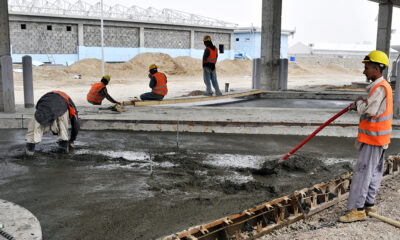Latest News
Red Cross set to end funding at 25 hospitals in Afghanistan
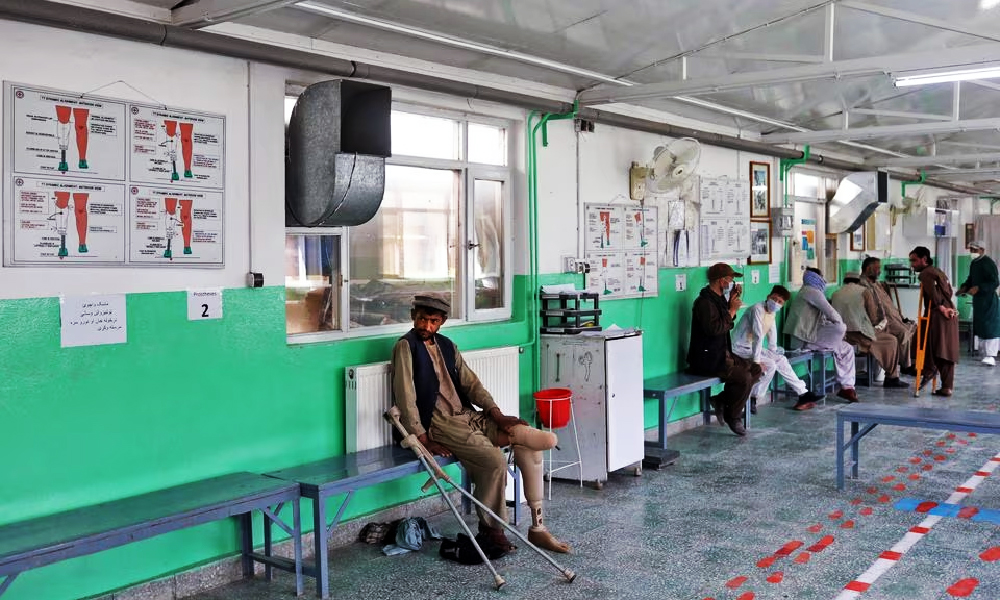
The International Committee of the Red Cross (ICRC) is likely to end the financial running of 25 Afghan hospitals by the end of August due to funding constraints, a spokesperson told Reuters, amid growing concerns over a plunge in aid to Afghanistan.
“Although we continue to engage with government ministries, donors, and organisations to find alternative sustainable support mechanisms for the hospital sector, the phase-out of the Hospital Program is expected to happen tentatively at the end of August,” Diogo Alcantara, ICRC’s spokesperson for Afghanistan, told Reuters on Thursday.
“The ICRC does not have the mandate nor the resources to maintain a fully functioning public health-care sector in the longer term,” Alcantara said.
In April, ICRC said its governing board approved 430 million Swiss francs ($475.30 million) in cost reductions over 2023 and early 2024 and a rolling back of operations in some locations as budgets for humanitarian aid were expected to decrease.
“The financial difficulties the ICRC is facing have sped up, in transparency with Islamic Emirate of Afghanistan (IEA) authorities, the expected return of the full responsibilities of the health services to the Ministry of Public Health,” Alcantara said, referring to the Taliban administration.
The program’s end comes amid growing concerns over cuts to Afghanistan’s humanitarian aid, two years after the IEA took over and most other forms of international assistance, which formed the backbone of the economy, were halted.
The Geneva-based organisation would continue its other Afghanistan health programs, including rehabilitation support for people with disabilities, Reuters reported.
A spokesman for the health ministry did not respond to request for comment.
It was not clear how much was needed to pay for the operations, which fund salaries and other costs at many of Afghanistan’s major hospitals serving millions of people, and if IEA authorities could cover that amount from the fiscal budget.
An Afghan finance ministry spokesman said this year’s budget had been finalised, but not publicly released.
The hospitals have been supported by ICRC since a few months after foreign forces left in August 2021.
Development funding was cut to Afghanistan as the IEA – which has not formally been recognised by any country – took over the country. The sudden financial shock imperilled critical public services including health and education.
The ICRC and other agencies including the U.N. stepped in to try to fill gaps.
“The (ICRC) took this decision back then to save the healthcare system from collapsing due to the financial crises that Afghanistan was experiencing and because many development agencies and other organisations left the country while the ICRC stayed,” Alcantara said.
The ICRC hospital program had originally covered 33 hospitals, eight of which have already been phased out, paying for the salaries of over 10,000 health workers and some medical supplies. The hospitals provided thousands of beds and served areas encompassing more than 25 million people – over half the population.
Neighbouring Pakistan is closely watching the development, a senior government official told Reuters. Pakistan, a major destination for healthcare for Afghans, routinely has thousands of medical visa applications lodged with its embassy, officials said.
“We are concerned about a further influx of medical patients,” said the Pakistani official, who declined to be identified to speak openly about sensitive diplomatic issues.
Pakistan’s foreign office did not reply to request for comment.
There is growing alarm over cuts to aid to Afghanistan, where the U.N. humanitarian plan for 2023 is only 25% funded, even after requested budget was downgraded from $4.6 billion to $3.2 billion.
Diplomats and aid officials say concerns over IEA restrictions on women alongside competing global humanitarian crises are causing donors to pull back on financial support. The Islamic Emirate has ordered most Afghan female aid staff not to work, though granted exemptions in health and education.
Almost three-quarters of Afghanistan’s population are now in need of humanitarian assistance, according to the aid agencies.
Latest News
Moscow’s move a ‘significant step toward recognizing Afghanistan’s political realities’, says Haqqani
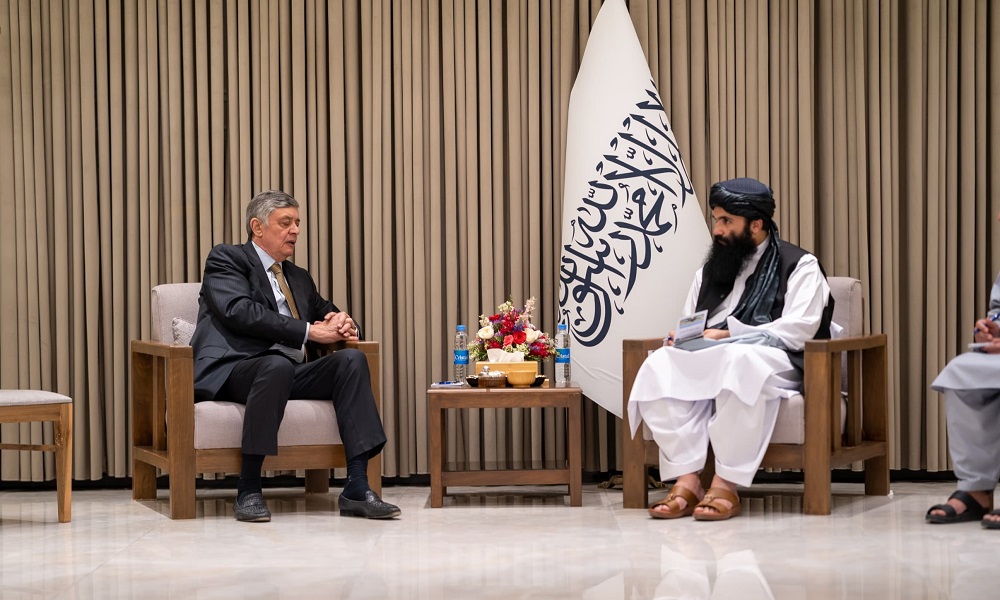
Acting Minister of Interior Sirajuddin Haqqani on Wednesday met with Zamir Kabulov, Russia’s special envoy for Afghanistan, and Dmitry Zhirnov, Russia’s ambassador to Kabul.
Haqqani expressed appreciation for Moscow’s recent decision to remove the Islamic Emirate from its list of terrorist organizations. He described the move as “a significant step toward recognizing the political realities of Afghanistan.”
In a statement, the interior ministry said that both sides emphasized the importance of upgrading diplomatic relations to the level of embassies and reaffirmed their commitment to mutual cooperation in the fields of security and trade.
During the meeting, the two parties also discussed regional and bilateral cooperation in the areas of security, economy, and commerce, and stressed the need to strengthen ties between the two countries.
Latest News
Special meeting will be held to launch Afghanistan–Russia joint commission, says Kabulov
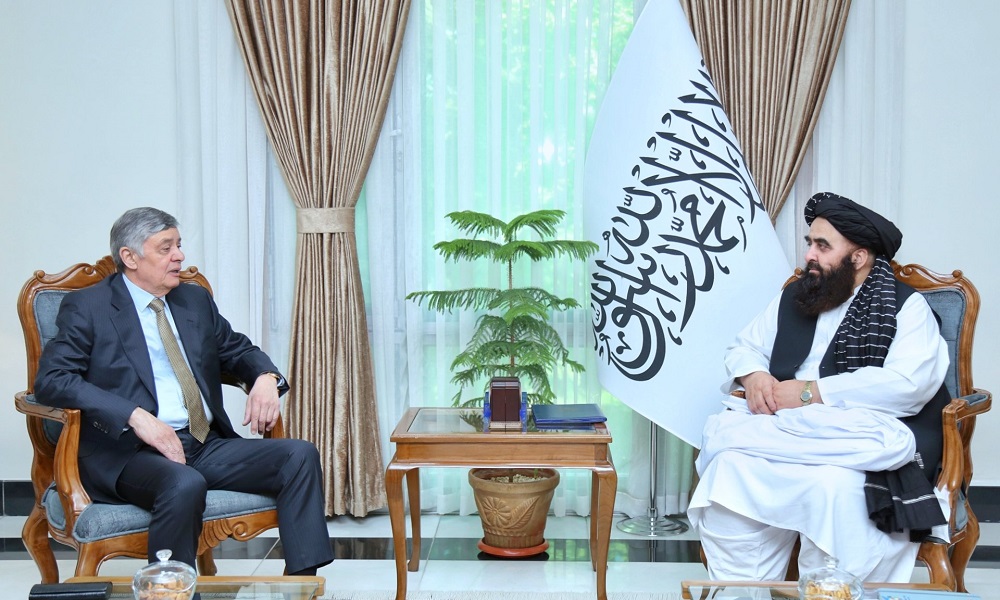
Zamir Kabulov, Russia’s special envoy for Afghanistan, on Wednesday met with Afghanistan’s Acting Minister of Foreign Affairs Amir Khan Muttaqi in Kabul and said a special meeting will be held on the sidelines of the Kazan Forum to officially launch the permanent joint commission between Russia and Afghanistan.
According to a statement issued by the Afghan foreign ministry, Kabulov said that expanding relations with Afghanistan is important to Russia, and for that purpose, Moscow has taken steps to remove obstacles in the path of developing bilateral ties.
This comes after Moscow last week removed the Islamic Emirate from their list of militant organizations.
During the meeting, Muttaqi expressed appreciation for Russia’s recent move to remove the IEA from its list of banned organizations and stated that the Islamic Emirate will soon appoint a diplomat at the ambassadorial level to serve in Moscow.
The two sides also discussed enhancing bilateral relations between Afghanistan and Russia, expanding economic and trade cooperation, and addressing certain regional issues.
The 16th International Economic Forum “Russia – Islamic World: Kazan Forum” will be held from May 13 to 18 in the city of Kazan, Russia. Afghan products and goods will be showcased at the event.
Latest News
Balochistan business chamber asks Islamabad to issue work permits to Afghan refugees
This comes amid Pakistan’s ongoing campaign to expel hundreds of thousands of Afghan refugees living in the country.
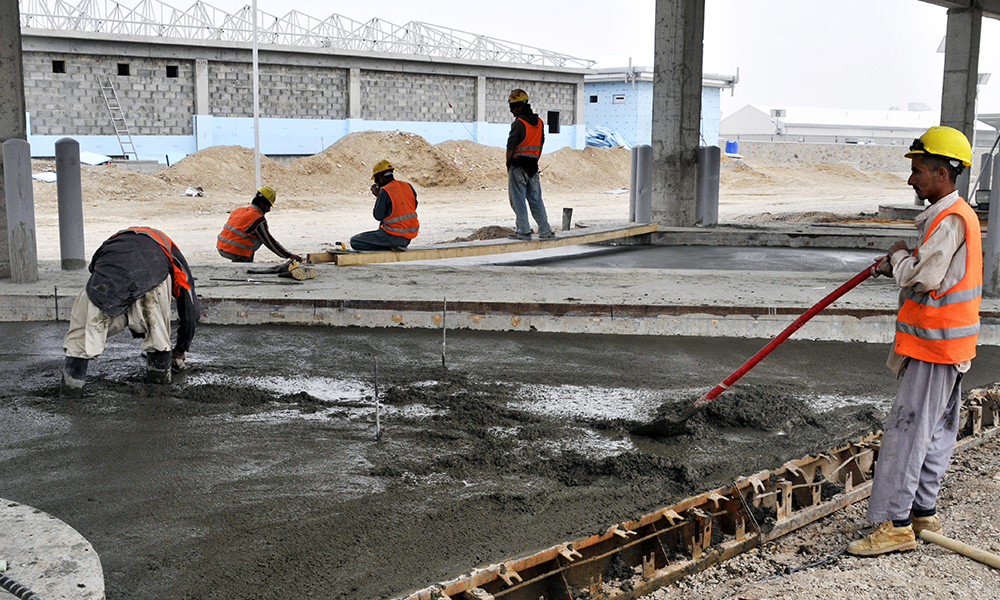
The Balochistan Chamber of Commerce and Industry in Quetta, Pakistan, has appealed to the federal government to issue work permits to skilled Afghan refugees who work in various sectors including mining and agriculture.
Haji Akhtar Kakar, the vice president of the chamber of commerce and industry, made the request while pointing out that the existing shortage of skilled labour could worsen further if the issue was not addressed promptly, Dawn news reported.
This comes amid Pakistan’s ongoing campaign to expel hundreds of thousands of Afghan refugees living in the country.
Akhtar said however that due to Balochistan’s deteriorating security situation, mine owners, farmers and industrialists have had to rely on Afghans for skilled labor as Pakistani workers from other provinces were reluctant to move to Balochistan.
According to him, the decision to expel Afghan refugees had severely impacted the agriculture, mining, and industrial sectors in Balochistan, as a significant portion of the workforce came from Afghanistan.
-

 Sport5 days ago
Sport5 days agoAfghanistan qualify for U19 Cricket World Cup 2026
-

 Regional5 days ago
Regional5 days agoDeadliest US strike in Yemen kills 74 at oil terminal, Houthis say
-

 World4 days ago
World4 days agoThousands of protesters rally against Trump across US
-

 World4 days ago
World4 days agoIran, US end nuclear talks in Rome, agree to meet next week
-

 Latest News4 days ago
Latest News4 days agoPolio vaccination campaign launched in Afghanistan
-

 International Sports4 days ago
International Sports4 days agoIPL 2025: 14-year-old Vaibhav Suryavanshi becomes youngest IPL player
-

 International Sports2 days ago
International Sports2 days agoIPL 2025: Robo-Dog ‘Champak’ explained
-

 Latest News3 days ago
Latest News3 days agoChina invites various Afghan delegations to attend Shanghai forums










